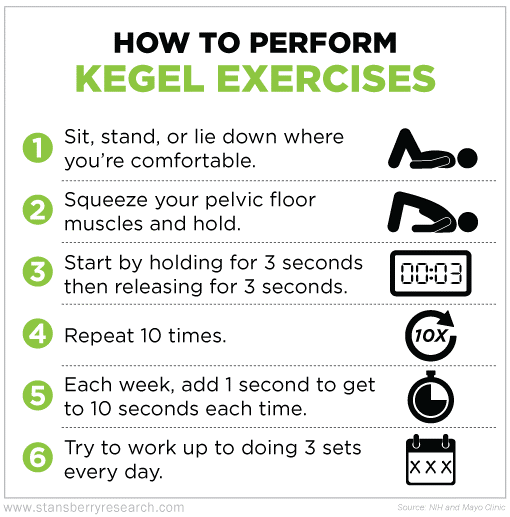Fifteen years ago, an automated phone survey helped create a brand-new disease...
The questions were simple... How many times do you need to urinate? How many times do you have a sudden urge to go?
These vague questions were enough to launch a new condition – overactive bladder ("OAB"). And once you have a condition, you can sell a pill to treat it...
Even the phone study's co-author, Dr. Alan Wein, concedes the results from the survey were overstated, as a joint investigation between MedPage Today and the Milwaukee Journal Sentinel found:
"If I call you up on the phone and asked if in the last month you've ever had a really strong desire to urinate, and you say that's happened, then theoretically you would qualify as (having) overactive bladder," he said in an interview.
Prior to the mid-1990s, most people hadn't heard the term "overactive bladder." In 1997, drugmaker Pharmacia sponsored the first overactive bladder conference. Pharmacia also sponsored that 2001 phone survey.
The phone survey claimed that 17% of the population had an overactive bladder. A few years later, drugmaker Pfizer ran a study that announced the number was 19%.
Regular readers know I'm skeptical of studies paid for by drug companies. That's why this investigation makes me concerned about a known problem in Big Pharma... overtreatment.
I'm not saying the disease doesn't exist... It's certainly true that a surge in research did improve diagnostic measures in the 90s.
And as the phone survey shows, many Americans do have some symptoms. But instead of sensible lifestyle fixes, they're just popping more and more pills. Today, sales of OAB drugs cost patients $3 billion.
Here's why this is so dangerous...
Many medications and other conditions cause frequent urination.
Everything from diabetes to constipation can make you head for a restroom more often than you'd like. Getting a diagnosis of OAB does not mean you shouldn't keep trying to find the cause.
For instance, OAB symptoms can result from...
| • Parkinson's disease | • caffeinated drinks |
| • multiple sclerosis | • alcohol |
| • pregnancy and childbirth | • too much vitamin C |
| • menopause | • citrus fruits |
| • prostate issues (enlarged or cancer) | • carbonated drinks |
| • urinary tract infection or blockage | • blood pressure medicine |
| • age | • muscle relaxants |
| • constipation | • stress |
If you suspect you have one of these other conditions, make sure you get tested. Understanding the root cause helps prevent further medical complications.
Medications are not 100% effective and can cause serious side effects.
A thorough analysis by Consumer Reports looked at the seven most popular drugs for OAB. They could not find one drug that was more effective than the rest.
In fact, Consumer Reports failed to rank any of the drugs as a Best Buy – their usual standard for the best in class. The researchers found that the risk of side effects and "moderate" effectiveness of the drugs made them less than desirable.
Side effects include everything from constipation to blurred vision, dizziness, even increased blood pressure, and risk for urinary tract infections.
The MedPage investigation highlighted some of the extreme cases – a 77-year-old dead from kidney failure and a 51-year-old woman hospitalized with paranoid delusions, both after taking OAB medications in combination with other drugs.
Try these three steps before popping another pill...
1) Avoid known triggers for bladder problems. Cut back on caffeine, carbonated drinks, and alcohol. Don't cut down on fluids, though – you still need water to function.
2) Create a schedule for urination. Sometimes getting your body on a set schedule can help avoid urgent trips.
3) Exercise your bladder. You can train your pelvic muscles to alleviate many symptoms of overactive bladder with an exercise called "Kegels."
Kegels help build up the strength in the pelvic floor – basically where your bladder rests. They help you keep control. Both men and women can do Kegels.
First, to find your pelvic floor muscles, stop yourself as you urinate. Those muscles that contract to stop the urine coming out are the ones you need to exercise.
Then follow these steps below:
If you have trouble with OAB symptoms, talk to your doctor. Find out about any underlying causes first. Then try non-medication treatments... And if you can't manage your symptoms this way, be wary of which medication you take. Make sure you understand the side effects, interactions with other drugs, and overall effectiveness.
What We're Reading...
- Something different: The government knows your face.
Here's to our health, wealth, and a great retirement,
Dr. David Eifrig and the Retirement Millionaire Daily Research Team
Baltimore, Maryland
October 25, 2016

